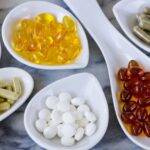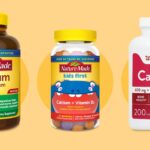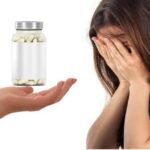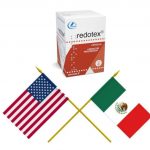Are NAC Supplements Banned?

N-acetylcysteine (NAC) also known as Acetylcysteine was synthesized in 1961 and patented by Mead Johnson in 1965. NAC is valued primarily for its role in antioxidant production. Along with two other amino acids — glutamine and glycine — NAC is needed to make and replenish glutathione. Glutathione is one of the body’s most important antioxidants, which helps neutralize free radicals that can damage cells and tissues in your body.
It’s essential for immune health and fighting cellular damage. Some researchers believe it may even contribute to longevity. Its antioxidant properties are also important for combatting numerous other ailments caused by oxidative stress, such as heart disease, infertility, and some psychiatric conditions.
N-acetylcysteine (NAC) is available in different dosage forms for different indications:
• Capsules
• Effervescent tablets
• Intravenous injection (Assist, Parvolex, Acetadote) – treatment of paracetamol/acetaminophen overdose
• Nebulized as an inhaled vapor, particularly in the treatment of cystic fibrosis and other acute pulmonary conditions
• Ocular solution – for mucolytic therapy
• Oral solution – various indications
• Solution for inhalation (Assist, Mucomyst, Mucosil) – inhaled for mucolytic therapy
• Tablets – sometimes in a sustained release formula sold as a nutritional supplement
The IV injection and inhalation preparations are, in general, prescription-only, whereas the oral solution and the effervescent tablets are available over the counter in many countries. Acetylcysteine is available as a health supplement in the United States, typically in capsule form.
Did the FDA ban NAC?
Though the FDA has not officially banned NAC supplements, the agency clearly states that it’s illegal for dietary supplements to contain N-acetyl cysteine since it’s technically an approved drug. Prescription N-acetyl cysteine products are available under the guidance of a healthcare provider.
The effect of the FDA’s new position which came in form of a warning letter has sent shock waves across the supplement industry. For decades, NAC has also been available in supplements. There are well over 1,100 NAC-containing non-pharmaceutical products on the market, typically sold for liver health, detoxification, antioxidant activity, and immune system support. The ingredient is very safe, and until the June 2020 warning letters, it seemed the FDA had no issues with it.
Though the warnings were limited to hangover products, the impact was greatly amplified with Amazon’s compliance which cited the FDA’s position that the ingredient is a drug–banned the sale of all NAC products on its commerce platform, the action affected over 718 NAC-containing products listed on the platform. In the online supplement market, Amazon supplements make up 77% of sales. That’s more than the top five specialty vitamin sellers combined.
Why was NAC taken off the market?
Most companies are taking NAC-containing products off the market because of the FDA’s June 2020 warning letters to specific companies stating that N-acetyl-L-cysteine (NAC) cannot be lawfully marketed as a dietary supplement.
Following the uproar that greeted the FDA’s decision, two citizen petitions asking the agency to reconsider its position on the use of NAC as a dietary supplement was confirmed by the agency. In June 2021, the Council for Responsible Nutrition (CRN) asked the FDA to reverse the agency’s position that NAC-containing products cannot be dietary supplements. In August 2021, the Natural Products Association (NPA) asked the FDA to either determine that NAC is not excluded from the definition of a dietary supplement or, in the alternative, initiate rulemaking to make NAC a lawful dietary supplement under the Federal Food, Drug, and Cosmetic Act.
In response, the FDA requested additional information from the petitioners and interested parties and noted that the agency needs additional time to carefully and thoroughly review the complex questions posed in the petitions.
To help the agency respond to the petitions, the FDA is interested in receiving data and information on the earliest date that NAC was marketed as a dietary supplement or as a food, the safe use of NAC in products marketed as a dietary supplement, and any safety concerns. If applicable, the FDA will use the information submitted to the public docket and other applicable information to determine if rulemaking to make NAC lawful as a dietary supplement is appropriate.
The FDA is asking interested parties to submit such information by January 25, 2022, while the agency continues to evaluate both citizen petitions. The agency will use the information submitted for their analysis and provide a final response to both petitioners directly once they complete the review.
NAC Side Effects
Along with its needed effects, acetylcysteine (the active ingredient contained in NAC) may cause some unwanted effects. Although not all of these side effects may occur, if they do occur they may need medical attention.
Common side effects
- Nausea
- Stomach upset
- Vomiting
NAC may also cause serious side effects. Check with your doctor, pharmacist, or healthcare provider if any of the following side effects occur while taking acetylcysteine:
- Difficulty with breathing or swallowing
- Fever
- Hives or itching
- Nausea
- Rash with or without a fever
- Reddening of the skin, especially around the ears
- Severe or ongoing vomiting
- Swelling of the eyes, face, or inside of the nose
- Unusual tiredness or weakness
This is not a complete list of possible side effects. If you notice other effects not listed above, contact your doctor or pharmacist.
In the US –
Call your doctor for medical advice about side effects. You may report side effects to FDA at 1-800-FDA-1088 or at www.fda.gov/medwatch.
In Canada – Call your doctor for medical advice about side effects. You may report side effects to Health Canada at 1-866-234-2345.





